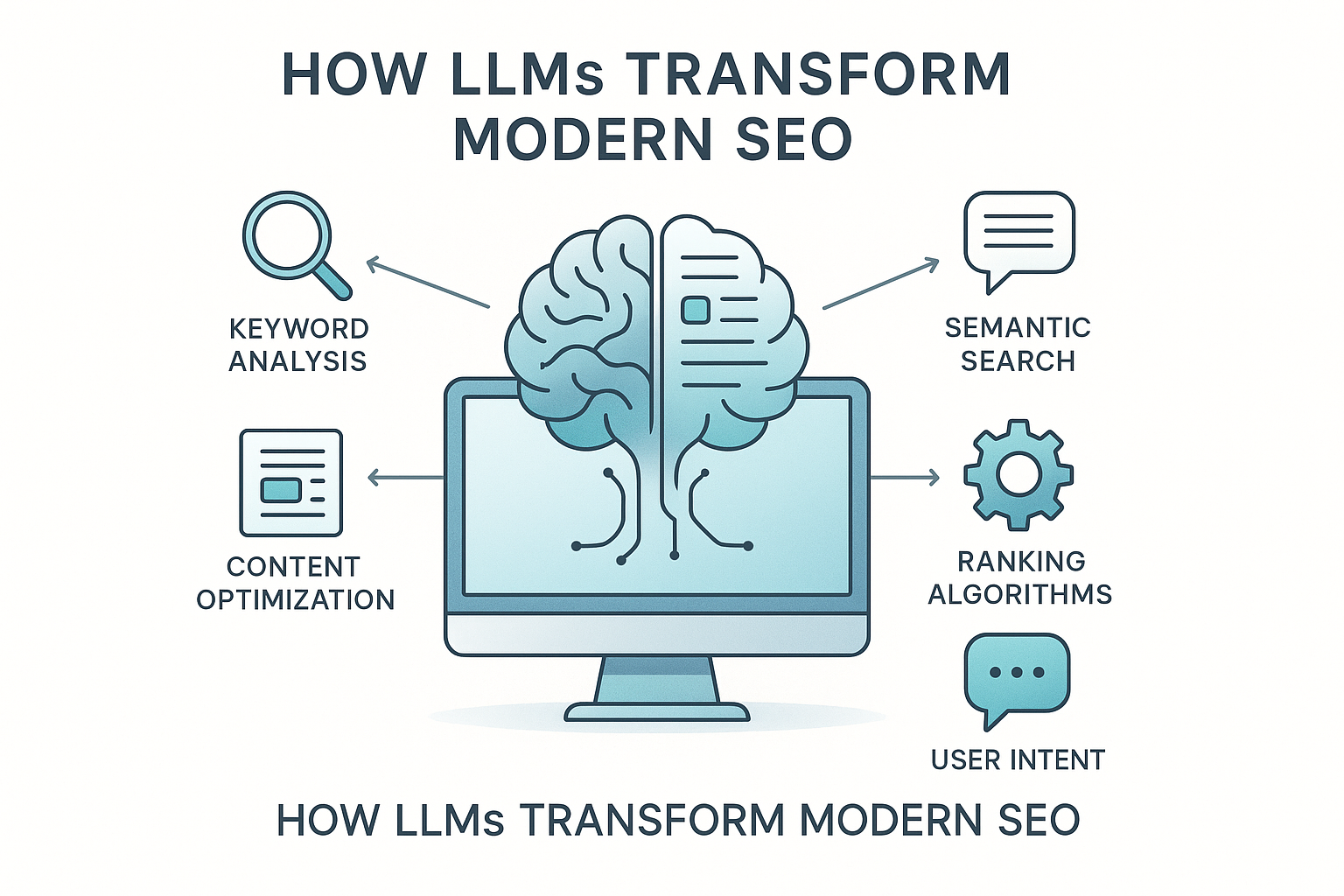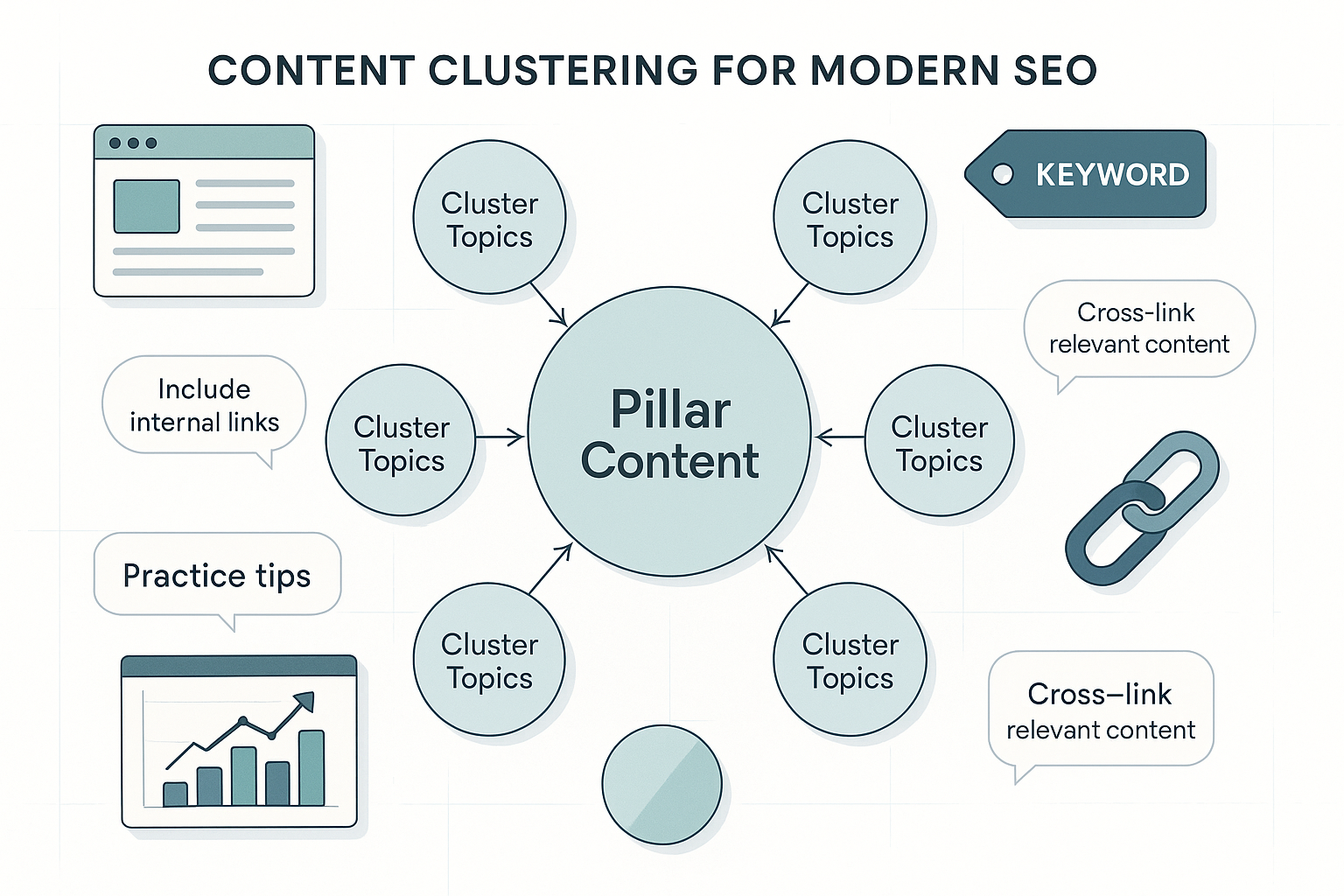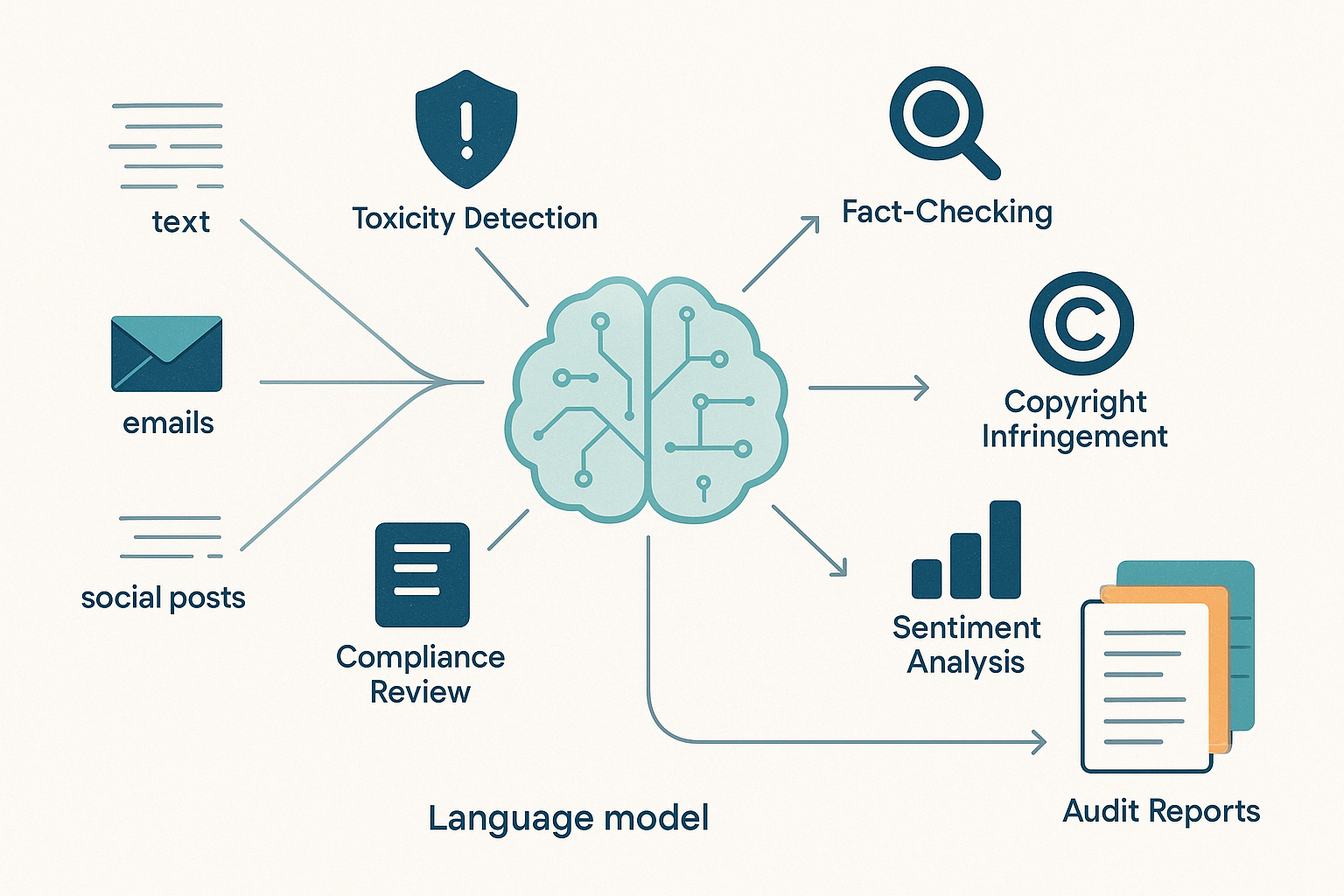Advanced on page SEO made simple.
Powered by POP Rank Engine™
Includes AI Writer
7-day refund guarantee
In the ever-evolving world of search engine optimization (SEO), a new player has emerged: AI-generated content. As businesses and marketers strive to keep up with the insatiable demand for fresh, engaging content, many are asking, "Is AI content good for SEO?" The answer, like most things in the digital realm, is nuanced.
Artificial intelligence has revolutionized countless industries, and content creation is no exception. AI tools and generators are now capable of producing articles, blog posts, and even social media copy at an astonishing rate. This has led to a heated debate among SEO professionals and content marketers:
- Can AI-generated content truly replace human writers?
- Will it help or harm search rankings?
- How does it align with Google's guidelines for helpful content?
The truth is, AI content can be a good idea when used strategically. It offers unparalleled efficiency and can be incredibly useful for tasks like:
- Generating initial drafts
- Conducting keyword research
- Streamlining content management
However, it's crucial to remember that quality still reigns supreme in the eyes of both search engines and human readers. The key lies in striking a balance between leveraging AI's capabilities and infusing content with the human touch that makes it truly valuable and engaging.
Which is the best LLM for SEO content?
Get the full rankings & analysis from our study of the 10 best LLM for SEO Content Writing in 2026 FREE!

- Get the complete Gsheet report from our study
- Includes ChatGPT, Gemini, DeepSeek, Claude, Perplexity, Llama & more
- Includes ratings for all on-page SEO factors
- See how the LLM you use stacks up
The Impact of AI Content on Search Rankings
When it comes to SEO, the question on everyone's mind is, "Is AI content good for SEO?" The impact of AI-generated content on search rankings is a complex issue that deserves a closer look.
Information Gain and Content Quality
One of the primary factors that Google considers when ranking content is its ability to provide valuable information to users. This is where AI content can shine or falter:
- Pros: AI tools can quickly generate content based on vast amounts of data, potentially covering topics more comprehensively than human writers.
- Cons: The content may lack originality and fail to provide new insights, which is crucial for information gain.
Helpful content is not just about quantity; it's about quality and uniqueness. While AI can produce large volumes of content, it may struggle to be nuanced and more helpful in ways that truly engage readers and satisfy search intent.
Scalability and Efficiency Benefits
For businesses and brands looking to boost their online presence, AI content generators offer significant advantages:
- Rapid content creation for multiple platforms
- Consistent output for content calendars
- Cost-effective alternative to large writing teams
These benefits can lead to increased traffic and improved SEO performance, especially for brands that struggle with content production.
Potential Risks: Duplicate Content and Lack of Originality
However, relying too heavily on AI-generated content can pose risks:
- Duplicate content: If many websites use similar AI tools, they may produce nearly identical content, which can harm SEO efforts.
- Lack of originality: AI may struggle to create truly unique perspectives that set content apart.
- Missing human touch: Customers and readers often connect better with content that has a personal, human element.
Google's E-E-A-T Framework and AI Content
Google's E-E-A-T framework (Experience, Expertise, Authoritativeness, and Trustworthiness) presents both challenges and opportunities for AI content:
- Experience: AI lacks real-world experience, which can be crucial for certain topics.
- Expertise: While AI can compile expert information, it may not have the depth of understanding that human writers possess.
- Authoritativeness: Content created by recognized experts often ranks higher than anonymously generated content.
- Trustworthiness: Readers may be less inclined to trust content they know is AI-generated.
To truly leverage AI content for SEO, it's essential to combine the efficiency of AI tools with human expertise and oversight. This hybrid approach can result in content that is both useful and good for SEO, striking the right balance between quantity and quality.
Limitations and Challenges of AI-Generated Content
While AI content has its merits, it's crucial to understand its limitations when considering "Is AI content good for SEO?" Let's dive into some of the challenges that businesses and marketing teams face when relying on AI-generated content.
Factual Accuracy and Hallucinations
One of the most significant issues with AI tools is their tendency to produce inaccuracies or "hallucinations":
- AI can confidently state incorrect information
- It may mix up facts or create non-existent data
- Outdated training data can lead to obsolete content
This problem can severely impact the quality and trustworthiness of your content, potentially harming your SEO efforts.
Lack of Unique Insights and Thought Leadership
AI generators excel at compiling existing information, but they struggle to provide:
- Original thoughts or opinions
- Cutting-edge industry insights
- Personal experiences or anecdotes
For brands aiming to establish thought leadership, this limitation can be a significant drawback.
Difficulty in Conveying Brand Voice and Authenticity
Every brand has a unique voice that resonates with its customers. AI content, while efficient, often falls short in capturing this essence:
- Generic tone and style
- Lack of emotional nuance
- Difficulty in adapting to specific brand guidelines
Human writers are still unmatched in their ability to infuse content with personality and authenticity.
Handling Sensitive or Rapidly Evolving Topics
Artificial intelligence struggles with topics that require delicacy or up-to-the-minute accuracy:
- Sensitive social issues
- Breaking news or current events
- Complex legal or medical topics
In these cases, human oversight is crucial to ensure content is appropriate, accurate, and helpful.
While AI tools can be incredibly useful for generating ideas and streamlining the writing process, they are not a one-size-fits-all solution. To truly be nuanced and more helpful, content often requires the touch of human writers who can add depth, creativity, and real-world expertise to the mix.
Which is the best LLM for SEO content?
Get the full rankings & analysis from our study of the 10 best LLM for SEO Content Writing in 2026 FREE!

- Get the complete Gsheet report from our study
- Includes ChatGPT, Gemini, DeepSeek, Claude, Perplexity, Llama & more
- Includes ratings for all on-page SEO factors
- See how the LLM you use stacks up
Best Practices for Using AI in Your SEO Strategy
Now that we've explored the pros and cons, let's tackle the question: "Is AI content good for SEO?" The answer lies in how you use it. Here are some best practices to help you leverage AI tools effectively in your SEO strategy.
Combining AI Assistance with Human Expertise
The key to success is finding the right balance between AI and human input:
- Use AI generators for initial drafts and ideas
- Have human writers refine and personalize the content
- Leverage AI for research and data analysis
- Let humans add unique insights and brand voice
This hybrid approach allows you to harness the efficiency of AI while maintaining the quality and authenticity that Google and readers value.
Ensuring Content Quality and Originality
To make AI content good for SEO, focus on:
- Fact-checking all AI-generated information
- Adding original research or exclusive insights
- Customizing content to your specific audience
- Optimizing for user intent, not just keywords
Remember, quality always trumps quantity in the eyes of search engines.
Implementing Human Oversight and Editing Processes
Establish a robust editing workflow:
- Have editors review all AI-generated content
- Check for brand consistency and tone
- Ensure compliance with Google's guidelines
- Add personal touches and real-world examples
This process helps create helpful content that resonates with your customers and boosts your SEO.
Leveraging AI for Research and Ideation
AI tools can be incredibly useful for:

Use these insights to guide your content strategy and make your writing more targeted and effective.
Maintaining Transparency About AI Usage
Being open about your use of AI can build trust:
- Disclose when content is AI-assisted
- Explain how you ensure quality and accuracy
- Highlight the human touch in your content process
This transparency can differentiate your brand and show your commitment to authenticity.
By following these best practices, you can make AI content a valuable part of your SEO strategy. The goal is to create content that's not just good for search engines but truly helpful and engaging for your audience. Remember, AI is a tool to enhance your content creation, not replace the human element that makes your brand unique.
When used wisely, AI tools can help you create more content, faster, while freeing up your team to focus on high-value tasks that require human creativity and expertise. This approach can lead to improved search rankings, increased traffic, and better engagement with your target audience.
The Future of AI Content and SEO
As we look ahead, the question "Is AI content good for SEO?" becomes increasingly complex. The landscape of search and content creation is evolving rapidly, and staying ahead of the curve is crucial for businesses and marketers.
Evolving Search Algorithms and AI Detection
Google and other search engines are constantly refining their algorithms:
- Improved ability to detect AI-generated content
- Greater emphasis on user experience signals
- More sophisticated analysis of content quality and relevance
This means that while AI tools may become more advanced, so too will the systems designed to evaluate content.
The Importance of Unique, Value-Adding Content
In the future, the key differentiator will be content that:
- Provides genuine insights and expertise
- Offers a unique perspective or original research
- Engages readers in meaningful ways
Human writers will remain essential in creating this type of high-value content.
Balancing Automation and Human Creativity
Successful SEO strategies will likely involve:
- Using AI for data analysis and content optimization
- Leveraging generative AI tools for initial drafts and ideas
- Relying on human creativity for storytelling and brand voice
This hybrid approach will help brands create content that is both efficient to produce and highly engaging for readers.
Adapting to AI-Powered Search Features
As search engines incorporate more AI features, content creators must adapt:
- Optimizing for voice search and conversational queries
- Creating content that answers questions directly
- Focusing on context and user intent rather than just keywords
By staying flexible and embracing new technologies while maintaining a human touch, businesses can ensure their content remains helpful, relevant, and good for SEO in the AI-driven future.
Conclusion
In the ever-evolving world of SEO and content marketing, the question "Is AI content good for SEO?" doesn't have a simple yes or no answer. AI tools have undoubtedly revolutionized content creation, offering businesses unprecedented efficiency and scale. However, the key to success lies in striking the right balance between artificial intelligence and human expertise.
By leveraging AI generators for research and initial drafts, while relying on human writers for creativity, nuance, and brand voice, you can create helpful content that satisfies both search engines and readers. Remember, the ultimate goal is to provide value to your audience. When used wisely, AI content can be a good idea for enhancing your SEO strategy, but it should never completely replace the human touch that makes your content truly engaging and unique.







